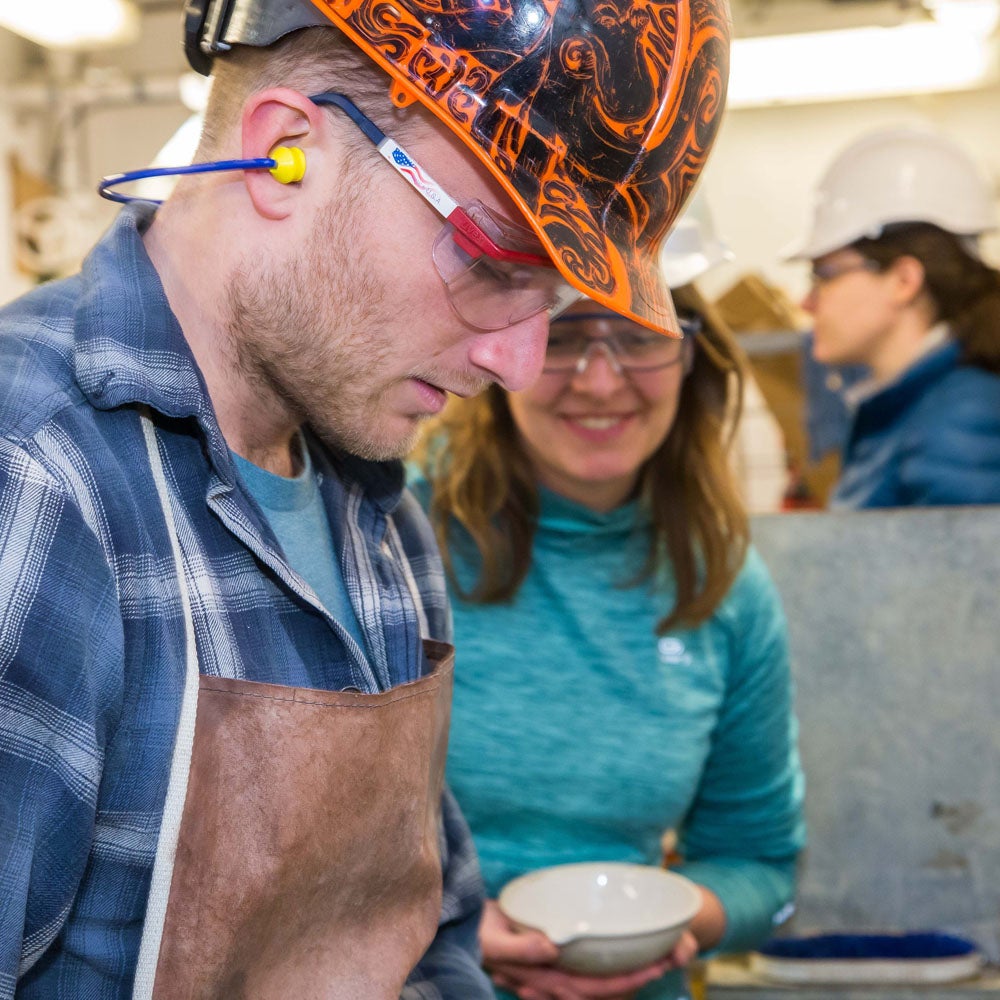June 4, 2020
Welcome to the tenth in our new series: GSO Profiles! Each post will feature a brief interview with a member of the GSO community. Our first several profiles will be of GSO students who graduated over the past year. These profiles are one way we can celebrate the accomplishments of those graduating in this unusual time of COVID-19, and also welcome them to the ranks of GSO alumni.
We are continuing our series with Skyler Jordan who received his Master of Oceanography in May, following the Ocean Data and Technology track. His advisors were GSO professors Art Spivack and David C. Smith. While at GSO, Skyler competed with the URI Club Rowing Team, so he was never far from the water. Originally from Ohio, an understanding of the importance of field work and an interest in understanding the mysteries of the ocean brought Sky to GSO. Now, with his acceptance in the NOAA Corps, he will have a career on the ocean!
Here’s Skyler in his own words:
GSOP: Tell us about your work/research at GSO: what question(s) are you trying to answer?
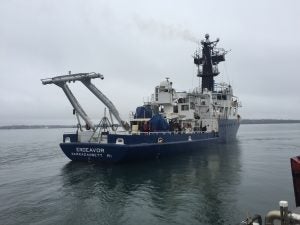
SJ: As an M.O. student, I did not have a thesis, but I was interested in working at sea in a technical role, so I took an opportunity to work as a paleomagnetics technician aboard the JOIDES Resolution and to join a mapping cruise aboard the Okeanos Explorer. I was also lucky to join the Endeavor for a cruise in my last semester. I was on the ship helping with research projects from February 13 to February 20, sailing from Narragansett to Bridgetown, Barbados.
GSOP: What is your favorite thing about your work?
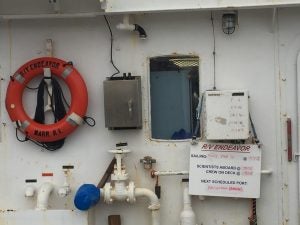
SK: The two best things about my work are getting to go to sea and travel. The ocean is a challenging place to conduct scientific research and things always go wrong, but it is always rewarding to look outside and see rolling waves, a flock of albatrosses, or a brilliant sunset. Those moments really make the challenges worth it.
GSOP: What led you to your studies/career in ocean science?
SJ: I’m originally from Ohio and graduated with a B.S. in biology in 2013. I’ve always loved being out in the field and getting my hands dirty, so I spent the years after college working in remote field camps, mostly conducting biological research. I liked the technical aspect of science and the data collection, and I became interested in oceanography because the ocean is so unknown. Studying the ocean is like studying space, it’s this big mysterious hostile environment that we don’t understand, so I found it fascinating.
GSOP: What brought you to GSO?
SJ: I eventually discovered the NOAA Commissioned Officer Corps, which is a group of people similar to Coast Guard or Navy officers, except that they operate NOAA’s fleet of research vessels and research planes, conducting oceanic and atmospheric research all over the world. It sounded ideal to me, but I realized I would need to gain some ocean-related experience and education before I was ready to apply. The Graduate School of Oceanography has a connection to the NOAA Corps through the Inner Space Center, and I got to meet the officer there (LT Nikolai Pawlenko) when I visited in 2018. I knew I was interested in the technical and operational side of research, not the actual research itself, so the unique Master of Oceanography degree really appealed to me and my goals. And in March I was accepted by the NOAA Corps as a primary candidate, so I will be heading to the United States Coast Guard Academy for training soon!
GSOP: How have the COVID precautions affected you?
SJ: My Endeavor cruise ended a few weeks before COVID-19 really took off, so it didn’t impact us – but there were ominous news broadcasts. Since I don’t have a thesis, the COVID-19 precautions just led to me taking my classes online and spending more time at home, social distancing. I did have the opportunity to give a seminar remotely and to attend several talks and thesis defenses via WebEx, and I generally thought that the transition was smooth.
GSOP: Who have been your role models or mentors?
SJ: LT Nikolai Pawlenko of the NOAA Corps is definitely a big role model for me. He was stationed at the Inner Space Center in 2018 when I visited, and we have kept in touch ever since. His support was vital to my ultimate acceptance into the NOAA Corps. David Smith and Dennis Graham were instrumental in pushing me towards my technical work aboard the JOIDES Resolution, and I don’t know if I’d have found that opportunity without them. Susanne Menden-Deuer and Martha McConnell were both big influences, though I had so many good experiences with the professors at GSO it would be difficult to name them all.
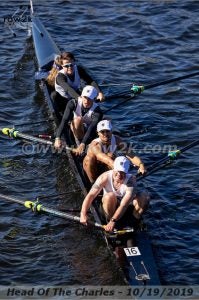
GSOP: What do you do for fun?
SJ: During my time at GSO I was a member of the University of Rhode Island Club Rowing Team, so I woke up early every morning to train on Narrow River for our regattas in the spring and fall. Lots of beautiful mornings on the river. It’s an incredibly challenging sport but I enjoyed the camaraderie of my teammates. Unfortunately, we lost our spring season to COVID-19, so I will have to cheer them on from the sidelines in the future!
GSOP: What is your favorite spot or view at GSO?
SJ: I think one of the best is in the Pell Library in the Ocean Science and Exploration Center (OSEC), looking down over the quad towards the bay, especially when the Endeavor is at anchor. I really like OSEC, it was so impressive when I initially visited.
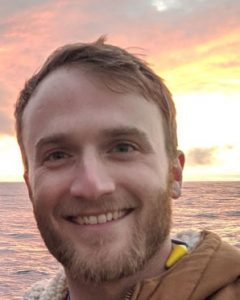
SJ: There are a lot of different options for a career in ocean science, not all of which involve being an academic scientist! I loved working as a technician, and I’m looking forward to working as a NOAA Corps officer, operating the vessel and supporting the research mission. It can seem like the only way to work in ocean science is to get a Ph.D., but many of the technicians I worked with did not have higher degrees in ocean science. If you like the idea of contributing to science but aren’t interested in data analysis, grant writing, or if you just like getting your hands dirty, I think working as a technician is a great way to do it.

